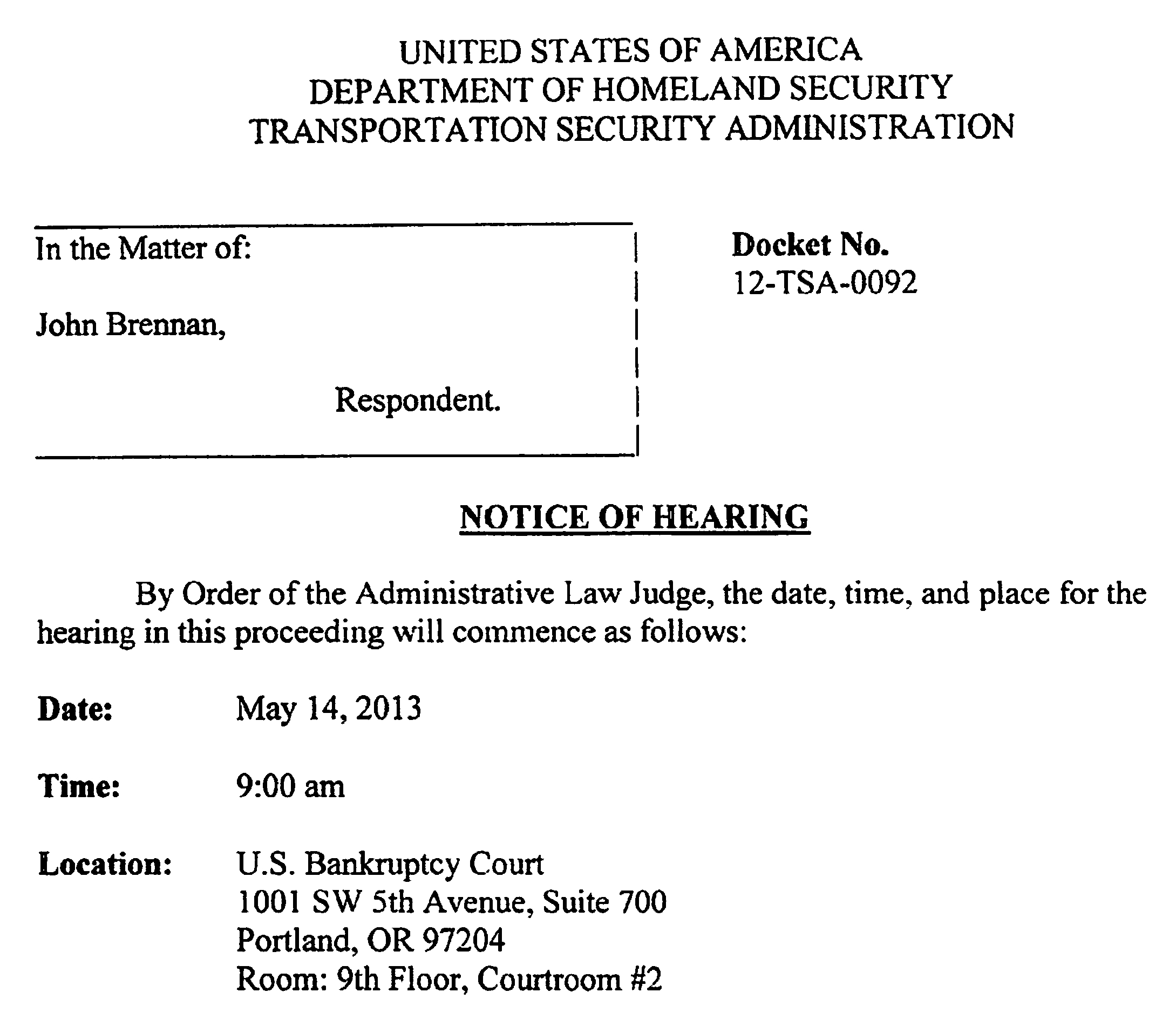Former Secretary of Homeland Security Chertoff said repeatedly in public speeches that government “no-fly” orders should not be subject to judicial review, and that has remained the position of the Obama Administration whenever the issue has been raised in lawsuits by people who have been prevented from flying.
Rather than defend its decisions in the courts, the U.S. government has argued that it doesn’t has to do so.
The government’s first line of evasive of judicial review has been to argue that the courts lack jurisdiction to hear such cases, and/or that the plaintiffs have no “standing” to sue.
Some plaintiffs have been removed from the “no-fly” list just before their cases were to be heard, so that the government could argue that their complaints had become “moot” (despite the very real risk that they could be put back on the “no-fly” list the next day, or in the middle of their next trip abroad).
Should those arguments fail, the government could always invoke its “nuclear option”: a claim that the case could not proceed without disclosing “state secrets”.
That’s what the government did earlier this year in the case of Rahinah Ibrahim, after the 9th Circuit Court of Appeals twice rejected government appeals of the district court’s refusal to dismiss the case on grounds of jurisdiction or standing. (The case has drawn notice both in law review and international press commentary.)
But unlike most judges who have accepted “state secrets” claims uncritically, Judge William Alsup of the U.S. District Court for the Northern District of California has taken seriously his obligation, once such a claim is properly asserted by the government, to “independently determine whether the information is privileged“:
According to our court of appeals: “The court must sustain a claim of privilege when it is satisfied, from all the circumstances of the case, that there is a reasonable danger that compulsion of the evidence will expose . . . matters which, in the interest of national security, should not be divulged. If this standard is met, the evidence is absolutely privileged….
After a careful review of the classified materials by the Court, this order concludes that a few documents could potentially be produced…. Defendants are ordered to show cause as to why the documents should not be produced.
In another order (also containing a useful summary of the proceedings to date) made public at the same time as this order to show cause, Judge Alsup granted portions of Ms. Ibrahim’s motions to compel the government to disclose documents requested on discovery, respond to interrogatories, and produce witnesses from the Department of State, the FBI, the National Counterterrorism Center, and the Terrorist Screening Center to be deposed by Ms. Ibrahim’s lawyers. While these depositions, if they happen, are likely to be greatly impeded by restrictions on questioning about “privileged” material, they would be the first time “no-fly” decision-makers would ever have been questioned under oath regarding their actions.
In his latest orders, Judge Alsup reminded the government forcefully that it is too late to make this case go away by removing any watchlist entries pertaining to Ms. Ibrahim:
Regarding the government’s challenge that plaintiff would not have standing were her name removed from the No-Fly (and Selectee) lists, the government has already lost this argument — twice. Our court of appeals held: “[e]ven if Ibrahim’s injury were limited to her inability to enter the United States, she would still have standing. . . . If Ibrahim’s name were removed from the TSDB, and thereby removed from the Consular Lookout and Support System, the State Department would be more likely to grant her a visa, given that it has relied on her alleged connection to terrorism as the basis for revoking her visa and denying her application for a new one.” … A prior order in this action likewise held: “Even if it turns out that she is not on the list anymore, she is nonetheless entitled to maintain this action to root out the residual effects and echoes in the various agencies resulting from the original erroneous listing.”
Plaintiff is entitled to discovery related to these issues and the government is the sole source of this information. To the extent that the documents she seeks reveal law enforcement procedures, the risks of disclosure are outweighed by the relevance of the information to plaintiff’s claims.
Judge Alsup seems to be losing patience with the government’s foot-dragging:
The government is ORDERED to produce updated interrogatory and request for admission responses in light of the Court’s recent discovery orders by MAY 2 AT NOON. Vague, dilatory, and otherwise uncooperative responses that lead to a successful motion to compel may result in an award of attorney’s fees, preclusion, and/or other appropriate sanction.
There’s also an intriguing passage in Judge Alsop’s latest order that might be a clue that the government’s mis-characterization of Ms. Ibrahim as a would-be terrorist was based, in whole or in part, on computerized facial image matching:
There are also a few documents and/or pages within documents that demonstrate the results of facial recognition software. These pages show matches between the plaintiff’s photograph and other photographs in government databases.
Unfortunately, we won’t be learning anything more about this. After reviewing these documents in camera (without showing them to Ms. Ibrahim’s lawyers), Judge Alsup found for unspecified reasons that:
These pages are not relevant to plaintiff’s claims and they tend to reveal the efficacy of government screening procedures. The government may redact any such pages from its productions.
Judge Alsup has ordered the government to deliver specified documents to Ms. Ibrahim’s lawyers, or file yet a third appeal of the same case to the 9th Circuit Court of Appeals, by May 2, 2013.
